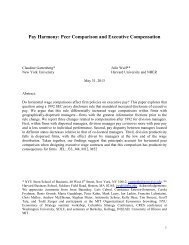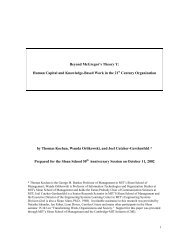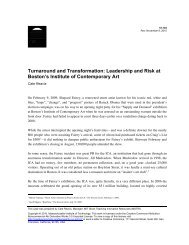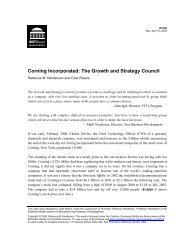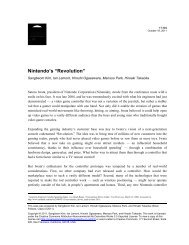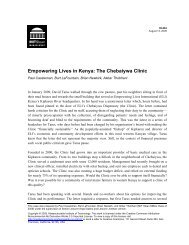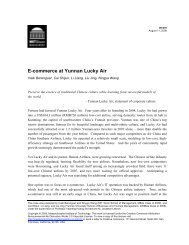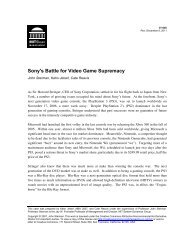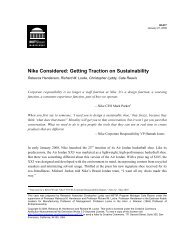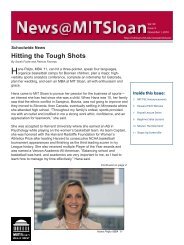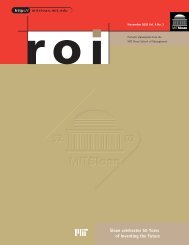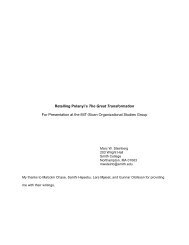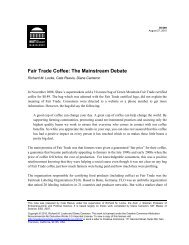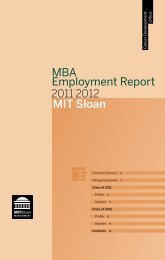Understanding earnings quality - MIT Sloan School of Management
Understanding earnings quality - MIT Sloan School of Management
Understanding earnings quality - MIT Sloan School of Management
You also want an ePaper? Increase the reach of your titles
YUMPU automatically turns print PDFs into web optimized ePapers that Google loves.
accruals, in total or individually, and cash flows to <strong>earnings</strong> persistence. Researchers have<br />
partitioned the accruals in many ways in an attempt to characterize the effect <strong>of</strong> accruals on<br />
persistence. For example, researchers have examined normal vs. abnormal accruals, extreme<br />
accruals (in magnitude), more vs. less reliable accruals, operating vs. investment accruals, short-term<br />
vs. long-term accruals, and even specific accounts. A broad summarization <strong>of</strong> the findings is that the<br />
cash flow component is more persistent than the accrual component <strong>of</strong> <strong>earnings</strong>, and that the<br />
abnormal accrual component is less persistent than the normal accrual component <strong>of</strong> <strong>earnings</strong>. (See<br />
Section 3.1.1.)<br />
The research on persistence does not generally separate the contributions <strong>of</strong> the fundamental<br />
earning process (X) and the measurement <strong>of</strong> the process (e) to the persistence <strong>of</strong> reported <strong>earnings</strong>.<br />
The studies that examine the incremental persistence <strong>of</strong> accruals to cash flows are not sufficient to<br />
segregate the effects <strong>of</strong> “X” from “e” because current cash flows do not represent the fundamental<br />
<strong>earnings</strong> process, and in fact, the premise <strong>of</strong> accrual-based accounting is that accrual-based <strong>earnings</strong><br />
should provide better information about fundamental <strong>earnings</strong> than current cash flows. Several<br />
studies do provide direct evidence on how the application <strong>of</strong> accounting measurement rules to<br />
specific <strong>earnings</strong> processes (or features <strong>of</strong> a process) affects EQ outcomes. Penman and Zhang<br />
(2002), for example, show that expensing costs that have future benefits will lead to higher future<br />
<strong>earnings</strong> as the future benefits are “realized” in <strong>earnings</strong>, but the slowing <strong>of</strong> these expensed<br />
“investments” can lead to transitory boosts in <strong>earnings</strong>. As a consequence, increases in capitalized<br />
investments will likely lead to errors such that the currently observed return on assets is not<br />
sustainable. Lev and Sougiannis (1996) suggest that the expensing <strong>of</strong> R&D can lead to an <strong>earnings</strong><br />
stream that does not reflect growth in the fundamental <strong>earnings</strong> process.<br />
10



